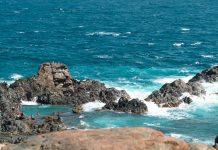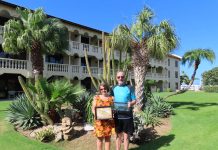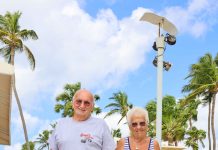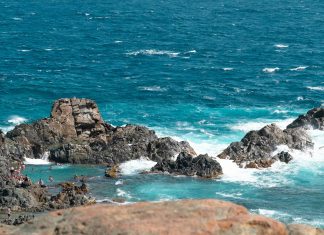Etnia Nativa: Your peek into Native magic, healing the spirit.
Article by Etnia Nativa call us 592 2702 and book your experience!
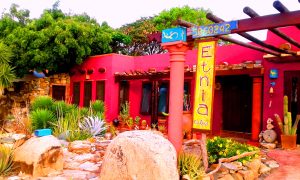
The narrative of Etnia Nativa—which means Native Ethnicity—highlights the importance of recovering and preserving Aruba’s cultural identity and heritage. Through this platform, readers gain access to an authentic native perspective that both educates the public and inspires a growing “island caretaker mindset.”
In this episode, we explore a sensitive yet globally relevant topic: geopolitics, the most consequential form of politics. You’ll discover how the decisions that shape the world’s destiny are not made by a single government, but rather on a global scale. We journey back to a time when the future “great powers” were being forged through expansionism—sailing into the crystal-clear waters of the Caribbean—while, in the ABC islands, the original inhabitants lived peacefully, immersed in the calm of the ocean, unaware of the changes brewing beyond the horizon at the end of the 15th century.
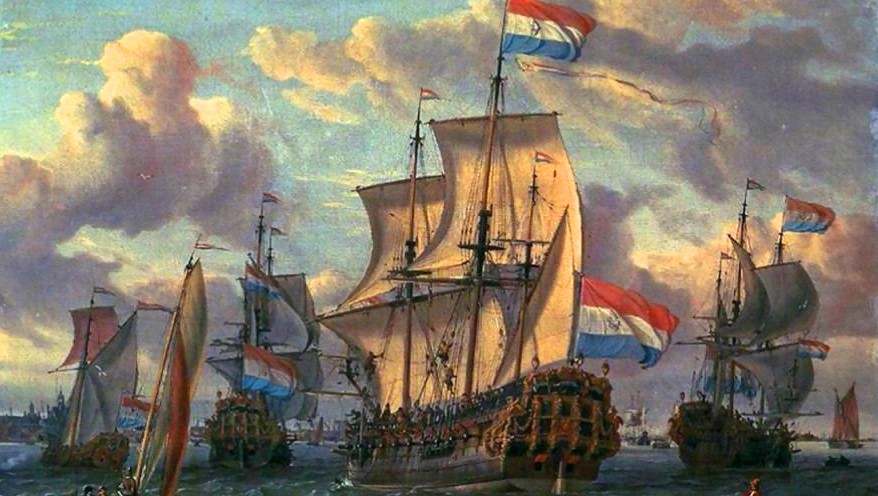
From the late 16th century onward, Dutch explorers began venturing into what were then Spanish territories in the New World. In 1585, they were first sighted near the southern coast of our islands by Caquetian natives. Meanwhile, small trading companies in Amsterdam, Enkhuizen, and Rotterdam initiated clandestine trade with Iberian colonies across the Atlantic, laying the foundation for the Netherlands’ rise as a global power. Sephardic merchants played a particularly crucial role, introducing Dutch traders to their South Atlantic networks within the Portuguese trading world. This facilitated commercial connections with mainland America despite strict Spanish restrictions.
By 1624, records indicate that livestock was being raised by Christianized Amerindians living on Curaçao, Bonaire, and especially Aruba. Although mostly flat, Aruba features two small mountains: Yamanota and Pan de Azúcar (Sugarloaf Mountain)—the latter so named for its resemblance to a Spanish sugarloaf and known today by its Dutch name, Hooiberg, meaning “Haystack.”
The island’s population—comprising Amerindians, mestizos, and a few Spaniards—thrived as farmers, fishermen, and herders of horses, mules, donkeys, cattle, goats, and sheep. Life remained largely peaceful, with no documented European landings, though Dutch ships began appearing off the coast in subsequent years.

Dutch sailors, however, were cautious of Aruba’s Native American riders, renowned horsemen who patrolled the island’s coast. In January 1627, a Dutch expedition led by Van Uytgeest sailed near Aruba’s southern coast and observed many natives on horseback, armed with long guns, bows, and arrows, appearing formidably unfriendly. Concluding that a landing would be too dangerous, the expedition continued its voyage to Riohacha, Colombia. Other Dutch squadrons passed near the island between 1628 and 1630, but Bonaire—not Aruba—was the first Leeward Island officially recorded as visited by the Dutch, in 1623.
The broader geopolitical struggle in the Caribbean was just beginning. In 1633, Spain reconquered and seized Saint Martin—a strategic link between Brazil and New Holland—diminishing Aruba’s importance along the route to Lake Maracaibo. With limited knowledge of the southern Caribbean, the Dutch relied on Jan Jansz Otsen, a sailor once captured by the Spanish and familiar with Curaçao, who provided them with crucial intelligence. Acting decisively, the Dutch officially set foot on the ABC islands in 1634, marking a turning point in Caribbean history.
Explore Aruba’s Roots at Etnia Nativa
If you’ve enjoyed discovering our ancestral stories and wish to delve deeper into the true identity of the Aruban people, we invite you to experience Etnia Nativa—the only “living museum” of its kind in the Caribbean, celebrating the island’s rich mestizaje (cultural blending).
Founded in 1994, Etnia Nativa has been a cultural pioneer—co-founding Aruba’s National Park, the Archaeological Museum, artisan foundations, and several grassroots initiatives dedicated to heritage and conservation.
But Etnia Nativa is more than a place—it’s a keyhole, a gateway. Quietly tucked away near the high-rise hotels, this private residence is a cultural sanctuary few tourists ever imagine discovering—and that’s precisely its magic. Intentionally intimate and off the beaten path, it welcomes only those with a genuine curiosity and a thirst for authentic discovery.
Connect with the spirit and soul of Aruba’s ancient heritage through a one-of-a-kind experience unlike anything else on the island. Whats App +297 592 2702 etnianativa03@gmail.com






